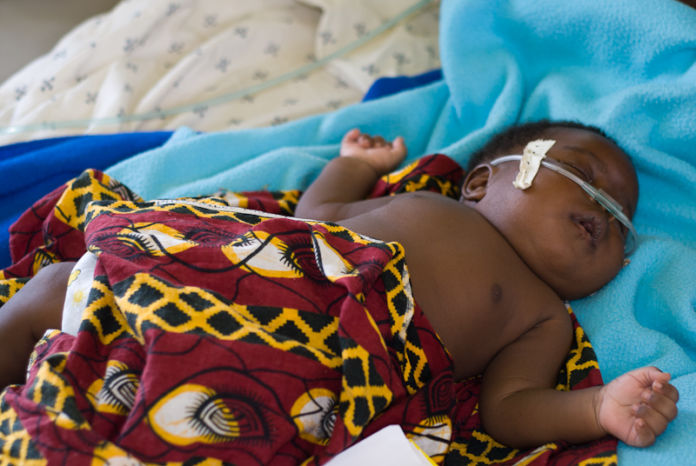Pneumonia claimed the lives of more than 800,000 children under the age of five last year, or one child every 39 seconds, according to a new analysis.
Most deaths occurred among children under the age of two, and almost 153,000 within the first month of life.
Sounding the alarm about this forgotten epidemic, six leading health and children’s organisations have launched an appeal for global action.
In January the group will host world leaders at the Global Forum on Childhood Pneumonia in Spain.
Henrietta Fore, Executive Director of UNICEF, said: “Every day, nearly 2,200 children under the age of five die from pneumonia, a curable and mostly preventable disease. Strong global commitment and increased investments are critical to the fight against this disease. Only through cost-effective protective, preventative and treatment interventions delivered to where children are will we be able to truly save millions of lives.”
Pneumonia is caused by bacteria, viruses or fungi, and leaves children fighting for breath as their lungs fill with pus and fluid.
More children under the age of five died from the disease in 2018 than from any other. 437,000 children under five died due to diarrhoea and 272,000 to malaria.
Kevin Watkins, Chief Executive of Save the Children, said: “This is a forgotten global epidemic that demands an urgent international response. Millions of children are dying for want of vaccines, affordable antibiotics, and routine oxygen treatment. The pneumonia crisis is a symptom of neglect and indefensible inequalities in access to health care.”
Just five countries were responsible for more than half of child pneumonia deaths: Nigeria (162,000), India (127,000), Pakistan (58,000), the Democratic Republic of Congo (40,000) and Ethiopia (32,000).
Children with immune systems weakened by other infections like HIV or by malnutrition, and those living in areas with high levels of air pollution and unsafe water, are at far greater risk.
The disease can be prevented with vaccines, and easily treated with low-cost antibiotics if properly diagnosed.
But tens of millions of children are still going unvaccinated – and one in three with symptoms do not receive essential medical care.
Children with severe cases of pneumonia may also require oxygen treatment, which is rarely available in the poorest countries to the children who need it.
Dr Seth Berkley, CEO of Gavi, the Vaccine Alliance, said: “The fact that this preventable, treatable and easily diagnosed disease is still the world’s biggest killer of young children is frankly shocking. We have made strong progress over the last decade, with millions of children in the world’s poorest countries now receiving the lifesaving pneumococcal vaccine. Thanks largely to Gavi’s support, pneumococcal vaccine coverage in low-income countries is now higher than the global average, but we still have work to do to ensure every child has access to this lifesaver.”
Funding available to tackle pneumonia lags far behind other diseases. Only 3% of current global infectious disease research spending is allocated to pneumonia, despite the disease causing 15% of deaths in children under the age of five.
Leith Greenslade, Coordinator of Every Breath Counts, said: “For decades the leading killer of children has been a neglected disease and the world’s most vulnerable children have paid the price. It’s time for governments, UN and multilateral agencies, companies and NGOs to join forces to fight pneumonia and protect these children.”
Meanwhile the organisations in a joint call to action urged governments in the worst-affected countries to develop and implement pneumonia control strategies to reduce child pneumonia deaths; and to improve access to primary health care as part of a wider strategy for universal health coverage.
They also called on richer countries, international donors and private sector companies to boost immunisation coverage by reducing the cost of key vaccines and ensuring the successful replenishment of Gavi, the Vaccine Alliance; and to increase funding for research and innovation to tackle pneumonia.




